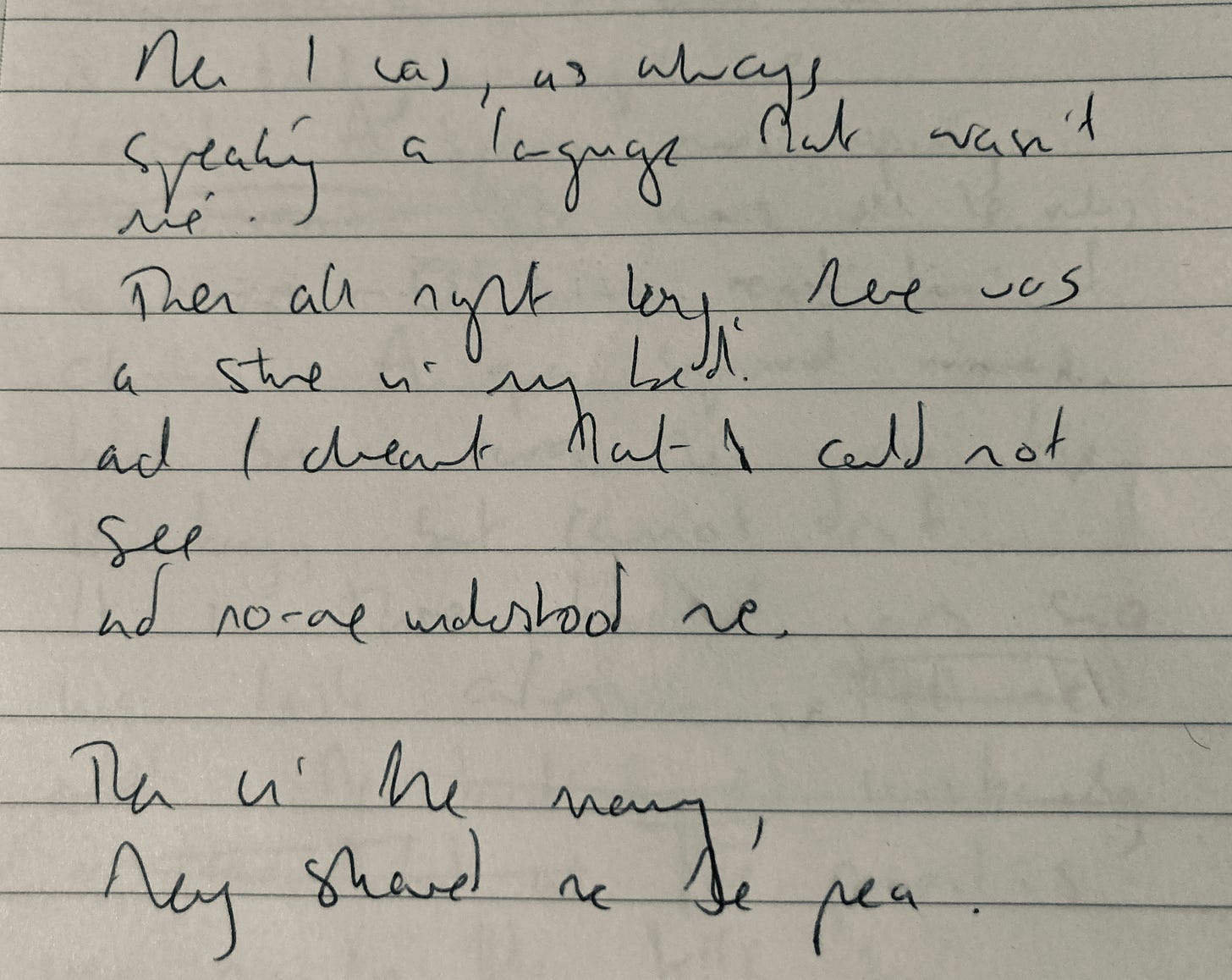In my recent article about being a neurodivergent writer, I described finding it much easier to run - rather than participate in - workshops. When I teach and facilitate, I know what’s expected of me. I have a clear role, which I’ve practiced and finessed over years. I’m confident and comfortable - and I know won’t be bored.
I don’t experience boredom passively; it’s not the absence of entertainment. It’s an active state, akin to severe thirst. It hurts, physically – a sort of painful anxiety. When a facilitator stalls the start of the workshop to wait for late arrivals, when introductions drag on interminably, when the same voices are allowed to dominate, when the facilitator talks and talks, when there’s lots of theory and much less writing, when everyone reads out their work at length - my anxiety builds from pulse-racing alertness to sweat-drenched, frozen fear. Making the decision to attend a poetry workshop is a serious business for me.
As a participant, I absolutely have to be interested. And to allow myself be engaged, I need to feel safe: to know what is going to happen within the session, when it will start and end, when the breaks will be. Most importantly, I need to trust the facilitator – are they kind and authoritative, informed and prepared? Are they committed to the wellbeing of the participants, are they excited by the subject they want me to engage with? It's frustrating that my anxieties and hypersensitivities, my struggle to concentrate and keep still, can stop me from taking part.
That’s why I’m interested in learning from other neurodivergent learners how they manage to engage; and I’m delighted to hear examples of accessible and exciting workshops and courses – not least because workshops which are accessible to neurodivergent learners can be the most engaging for all learners.
I’ll offer you my own example: on November 9th, I went to an online workshop run by Georgia Conlon - Happily Ever After – which as you might expect, took fairy tales as its leaping off point. It’s part of a series of “Material Girl” workshops … with Georgia as the facilitator who supplies us with endless material for our poetry.
I worked as a mentor with Georgia earlier this year. I’ll write more about the mentoring experience in another post – but in brief, it’s an intimate, committed relationship, so I only work with people I like, and whose work I respect. I admire Georgia’s work very much – especially how she tackles challenging subjects through form. She’s also an experienced teacher and tutor, with her own “Prompts for Poets” podcast series, which offers creative ideas and prompts to help you with your writing. A quick scan through past episodes - celebratory festivals through Nina Mingya Powles “Mid Autum Moon Festival”; magic realism in Richard Brautigan’s “Boat” – evidences wide reading and really interesting choice of poetry and subjects.
It's a rare workshop which keeps me engaged throughout, and Happily Ever After did just that – through Georgia’s ability to quietly yet firmly hold the space and guide participants through a series of really interesting prompts and discussions, in a workshop which felt rich and full, rather than rushed. In two hours I wrote five poems, two of which will be included in my next collection. Result!
Paying subscribers can read Georgia’s own account of the workshop, along with two workshop exercises/ poetry prompts for you to follow. As usual, I really hope that you share your thoughts, comments and poetry below.
Georgia will be running another series of workshops in the New Year, but for now, you can join her on Saturday 23rd at 10.30 for Ugly Repetition. This two-hour online workshop takes as its focus “Which words might we define as ugly, and how can we use them in our poetry? How can we use repetition powerfully?” You can find details about it here.
If you can’t manage Saturday 23rd at 10.30 – or if you want a weekend packed with poetry – then you might like to know that you can also join a Sunday 24th 4pm online writing workshop with me and Anna Chilvers: The Magic of the Bog. We’ll do our combined best to keep you interested.





thank you Clare - again - being taken inside your experience, so clearly expressed - really feeds my mind and heart - luv it
Tom
That's great commentary and advice for those who do offer workshops and webinars. I also feel that a good workshop leaves me thirsty for more. That I'm inspired to keep on exploring but also keep an eye out for that person running something else too.